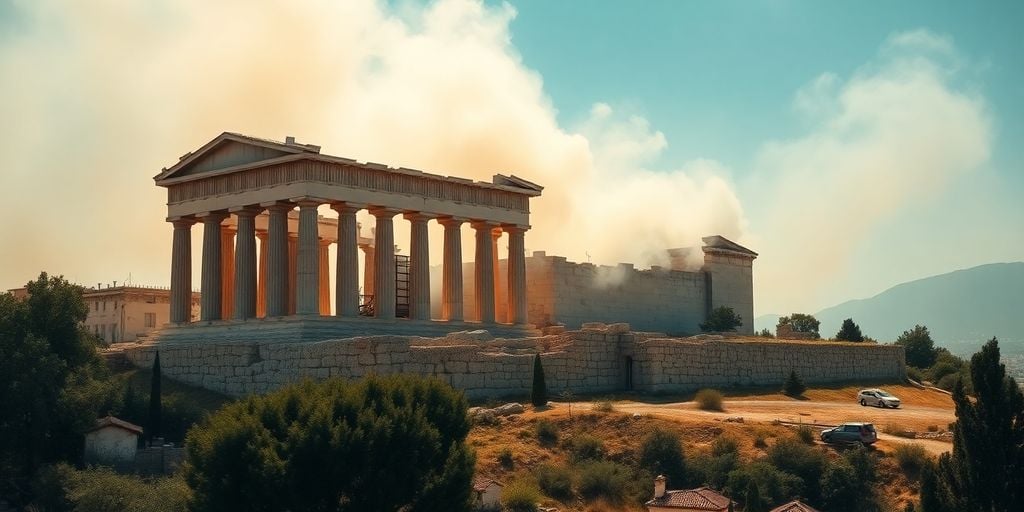Greece is currently battling an extreme heatwave, with temperatures soaring above 40°C (104°F) and even reaching 43°C (109.4°F) in some regions. This severe weather event has led to the closure of major historical sites, prompted widespread evacuations due to raging wildfires, and caused significant disruption to daily life and tourism.
Scorching Temperatures Grip Greece
Temperatures across Greece have consistently exceeded 40°C (104°F) for several days, with forecasts indicating the heatwave will persist through the weekend. The National Observatory of Athens reported that on Wednesday, July 24, 2025, over 310 measuring stations recorded temperatures above 37°C (98.6°F), with 78 stations surpassing 40°C (104°F).
Key Takeaways:
- Temperatures are reaching up to 43°C (109.4°F) in several areas.
- The heatwave is expected to continue through the weekend.
- High temperatures are contributing to an increased risk of heat stress.
Landmarks Closed Amidst Extreme Heat
In response to the dangerous conditions, authorities have temporarily closed Greece’s most iconic tourist attraction, the Acropolis in Athens. The site was shut down for five hours daily on Tuesday and Wednesday to protect visitors and workers from the intense heat, which can exceed 40°C (104°F).
Wildfires Rage and Villages Evacuated
The extreme heat has exacerbated the risk of wildfires, with several significant blazes erupting across the country. A major forest fire near Corinth, west of Athens, forced the evacuation of several villages. Over 185 firefighters, supported by 15 planes and 11 helicopters, are battling this fire in a pine forest. Another fire near Athens saw a firefighting helicopter crash into the sea while attempting to collect water, though its three crew members were rescued.
Impact on Labor and Tourism
The heatwave has also led to work restrictions for laborers, including couriers and construction workers, who were ordered to pause work during the hottest hours of the day. Tourists are advised to seek respite in air-conditioned spaces and stay hydrated. The prolonged high temperatures and the associated risks are impacting the typical summer tourism season.
Regional Impact
The extreme weather is not confined to Greece, with neighboring countries like Bulgaria, Kosovo, and Albania also experiencing scorching temperatures and battling wildfires. This widespread heatwave underscores the growing impact of climate change on the region.
Sources
- Greece Extreme Weather Heat | National, New Castle News.
- Labourers barred from work, tourists kept from ruins as heatwave sears Greece, Balkans, Reuters.
- Greece braces for 48 hours of extreme heat stress as temperatures soar above 40°C, Euronews.
- Greece Endures Prolonged Heatwave Wdith Temperatures Reaching 110°F, GreekReporter.com.
- A forest fire near the Greek city of Corinth forces evacuations, AP News.






